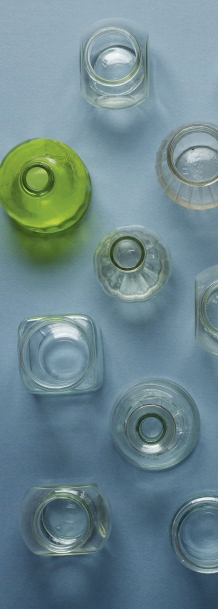Reduce, Reuse, Precycle
Tips For Our Trashcans
When Greenville County announced that they would no longer recycle glass, we had to face the truth about how much glass we’d been using and rethink our purchases. And although recycling is a critical part of caring for our environment, transforming and reusing the materials does require energy. Glass recycling is especially tricky; recyclers often want only clean, clear glass (no dark bottles). Precycling is a better option.
Precycling, the “reduce” in the recycling mantra, is the practice of carefully choosing products and packaging to minimize waste. Sometimes that means providing our own packaging. When we need rice, beans or wheat berries from the bulk bins at Whole Foods Market, we take our own mason jars with us. Customer Service marks the weight of the jar on a sticker (placed on the lid), and the weight is deducted from the product at check-out. We transfer the products directly from the bulk bins into the jars, saving the paper bags that we’d normally use.
One of our go-to convenience foods is organic pasta sauce; it can be as inexpensive as a 28-ounce can of good quality organic tomatoes. Now that we can’t take glass to the recycling center, we’ve gone back to canned tomatoes and their recyclable container. A quick and easy pasta or pizza sauce involves throwing a 28-ounce BPA-free can of Muir Glen fire-roasted tomatoes into the blender with two cloves of garlic, a teaspoon each of apple cider vinegar and brown sugar, and a quarter teaspoon of cinnamon. We don’t miss our pre-made sauce.
Beer bottles have presented a tougher dilemma. We aren’t ready to brew our own libations, and many canned beers have a significant amount of plastic packaging holding our six packs together. We were happy to find several brands of canned beer in recyclable cardboard cartons, including The Unknown Brewing Company, which can be found at Swamp Rabbit Café and Grocery. And clearly now might be the time to find good boxed wine, like those from Powers Winery, carried by The Community Tap.
Glass containers are not the only ones that can’t be recycled. In some counties, only plastic bottles and jugs with a neck are recyclable, which means that yogurt containers are not. That realization encouraged us to start making our own several years ago, a half-gallon at a time, and storing it in the refrigerator in mason jars. We’re still left with the milk jug, but it is recyclable—and we haven’t yet found a local milk producer who sells in reusable glass bottles.
Ask around. Be sure to visit your county’s website for information on what’s recyclable in your area.





